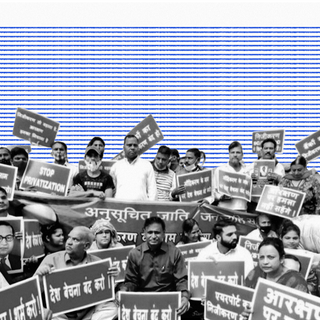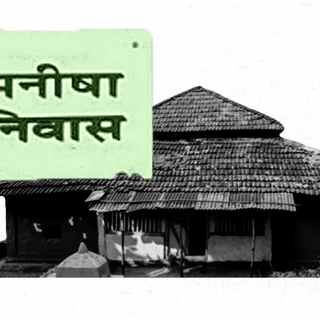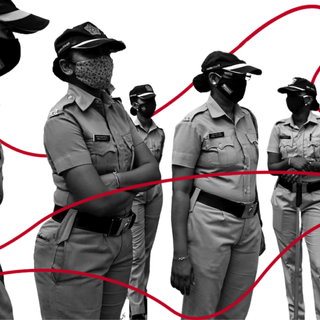
Gig and Delivery Workers Approach Supreme Court Seeking Social Security
“This is the first time we are all coming together collectively as gig workers from all the different platforms to ask for our rights.”

On Monday, the Indian Federation of App-Based Transport Workers (IFAT) filed a public interest litigation (PIL) in the Supreme Court, seeking worker protections for delivery and app-based transport workers. Highlighting that existing relief measures have been inadequate during the pandemic, gig workers seek recognition as ‘unorganized workers’ to avail of the associated social security benefits.
Significantly, the petition asks whether the ‘Right to Social Security’ is fundamental for all working people.
“This is the first time we are all coming together collectively as gig workers from all the different platforms to ask for our rights,” Shaik Salauddin, National General Secretary of IFAT, told The Swaddle. “We have faith in the Chief Justice that we will get justice,” he added.
IFAT is a registered union for gig workers. It argues that workers are in an employment relationship with platforms like Swiggy, Zomato, Ola, and Uber. Currently, outlets say that as “service aggregators,” they are not formally employers. However, this has led to rampant labor exploitation, according to IFAT. Hence, they demand recognition as workers under all social security legislations to avail themselves of the benefits.
“Through the PIL IFAT also hopes to hold the app-based companies accountable for the lives and livelihood of the drivers/driver-partners and delivery partners/executives who are struggling to survive as their incomes are dwindling, fuel prices are rising, and they are under immense stress from loan recovery agents and even state officials as they try to earn a living in this pandemic,” IFAT said, in a press release.
Recently, other countries made headway in the issue of recognizing the rights of gig workers as employees. The petition accordingly invoked a recent United Kingdom Supreme Court ruling against Uber, which stated, “…It is the very fact that an employer is often in a position to dictate such contract terms and that the individual performing the work has little or no ability to influence those terms that give rise to the need for statutory protection in the first place.”
Legally, the lack of recognition of these facts in India also means that gig workers are not protected by the Unorganised Workers Social Welfare Security Act, 2008. However, the petition argues that they meet the definition of ‘unorganized workers’ as per the Act.
Related on The Swaddle:
In the Gig Economy, Customers are Complicit in Labor Exploitation
The State’s failure to recognize gig workers as unorganized workers and provide social security benefits violated their fundamental rights. More specifically, it violates Articles 14 and 21 of the Constitution of India. These include the right to equality, the right to livelihood, the freedom to decent and fair work conditions.
Moreover, only one of the four labor codes that consolidated 44 labor laws last year recognizes gig workers. Their exclusion from the Industrial Relations Code, 2020 means that the rights around unionizing for fair terms of employment don’t apply to gig workers. The Occupational Health, Safety and Working Conditions Code, 2020 also does not include gig workers. This means that workplace safety measures don’t apply either. This has been of particular concern during the pandemic, when gig workers played a pivotal role as frontline workers at significant risk to themselves. Finally, the Wage Code, 2020 also excludes them, meaning that gig workers are not yet entitled to a minimum wage.
The Social Security Code, 2020 is the only code that added ‘gig and platform workers’ as a category. However, a criticism of the categorization is that it is distinct from ‘unorganized worker.’ But the basis for the distinction is not clear. This means that the protections and social securities offered are different and not adequate. For instance, the Code covers a few basic protections such as accident coverage, but vaguely defines the terms and authorities.
The Code also does not “address the gnawing problems of income insecurities, inhumanly long hours of work, increase in risks, and effects on physical and mental health,” according to Kaveri Medappa, a researcher on gig and platform labor from the University of Sussex. “There is accident insurance, but the bigger question is: how to avoid these accidents? Why are youngsters meeting with accidents?”
“The government created this new category without any consideration to the actual living conditions of workers or the relationship between tech platforms and so-called “partners.” There are so many overlaps,” she adds.
“If we have a problem, where do we go? Is it the Transport Department, the Transport Ministry, the Labor Department, Labor Ministry, IT Department, or IT Ministry? There has been no clarity on this to date from the government. We hope that at least the Supreme Court will say that there should be a law/department to hear our problems,” Salauddin explains.
Further, none of the Labor Codes are in effect yet. Hence no existing labor law, whether organized or unorganized, covers gig workers.
“Gig and platform workers lose the most from not having a specific law to seek protection under,” Salauddin said.
“The denial of social security to the said “gig workers” and the “platform workers” has resulted in their exploitation through forced labor,” the petition stated.
Thus, the petition asked that aggregators provide daily cash transfers until December 31st, 2021, or until the pandemic subsided. It outlined various instances of workers suffering during the pandemic due to no minimum wages or health cover when infected with Covid19.
“Being deprived of the most basic social security benefits and with absolutely no regulation of their working conditions, and having suffered immensely during both the 1st and 2nd phase of the Covid-19 pandemic, the Petitioners are constrained to file this Petition,” the petition read.
Rohitha Naraharisetty is a Senior Associate Editor at The Swaddle. She writes about the intersection of gender, caste, social movements, and pop culture. She can be found on Instagram at @rohitha_97 or on Twitter at @romimacaronii.
Related


Jharkhand Village Names Houses After Girls to Address Skewed Sex Ratio
